Walk into any home, office, or small business across Asia, and chances are you’ll spot a lush, green jade plant sitting near a window or entryway. Known as the “money tree” in Feng Shui, this hardy succulent has been a symbol of prosperity, balance, and good fortune for centuries. But the jade plant is more than just a decorative good-luck charm—it’s a natural air purifier, a stress reliever, and even a living teacher of patience and resilience.
According to recent data, indoor air pollution can be 2 to 5 times higher than outdoor levels, making plants like jade crucial for a healthier living space. Add to this the growing scientific evidence on how indoor plants reduce stress and boost focus, and it’s no wonder people are turning to greenery for both wellness and wealth.
In this article, you’ll uncover why every household should own a jade plant, the unique benefits it offers, how to care for it, and the cultural secrets that have kept it popular for generations. By the end, you’ll see why this unassuming succulent may be one of the most powerful additions to your home.
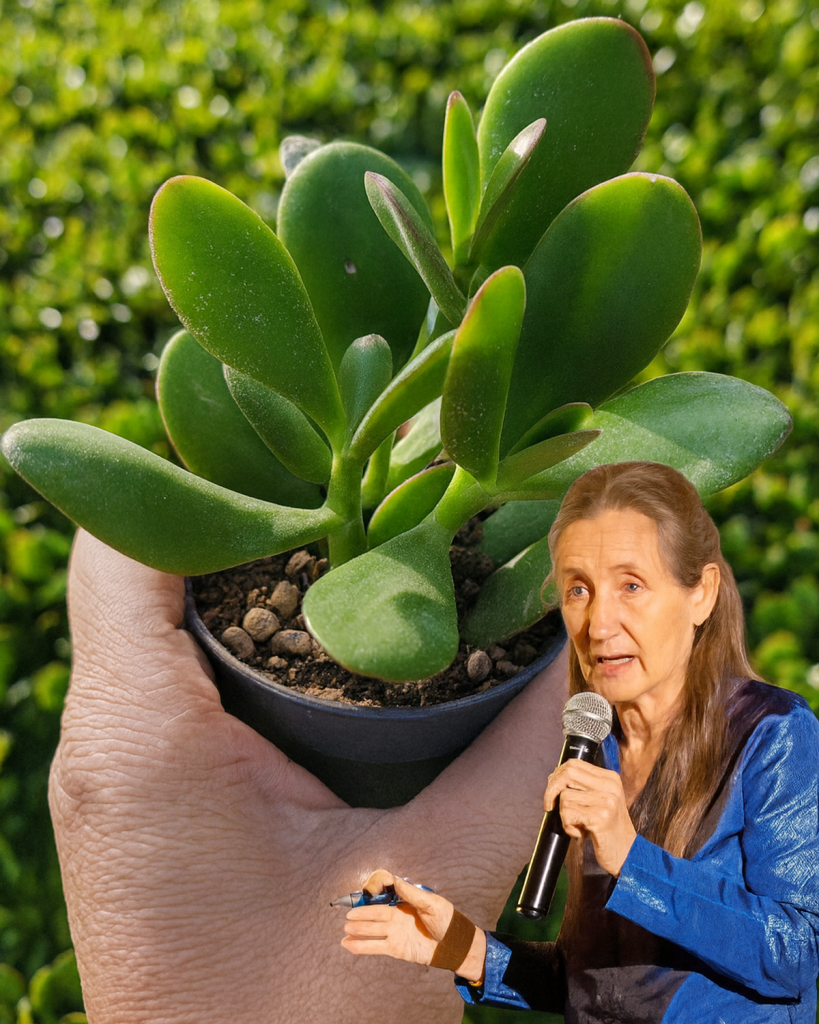
The History and Symbolism of the Jade Plant
The jade plant (Crassula ovata) originated in South Africa and Mozambique but has been embraced worldwide, especially in Chinese culture, where it is regarded as a living symbol of luck and prosperity.
Why It’s Called the “Money Tree”
- Its plump, coin-shaped leaves symbolize wealth and abundance.
- In Feng Shui, placing jade near the entrance of a home or office is believed to attract financial success.
- It’s often given as a gift to business owners or newlyweds as a blessing of prosperity.
Cultural traditions aside, modern plant lovers value the jade plant for its resilience, beauty, and subtle wellness benefits.
Health Benefits of Keeping a Jade Plant at Home
1. Natural Air Purification
Like many succulents, jade plants absorb carbon dioxide and release oxygen, improving indoor air quality. They also reduce toxins that can accumulate from furniture, cleaning products, and electronics.
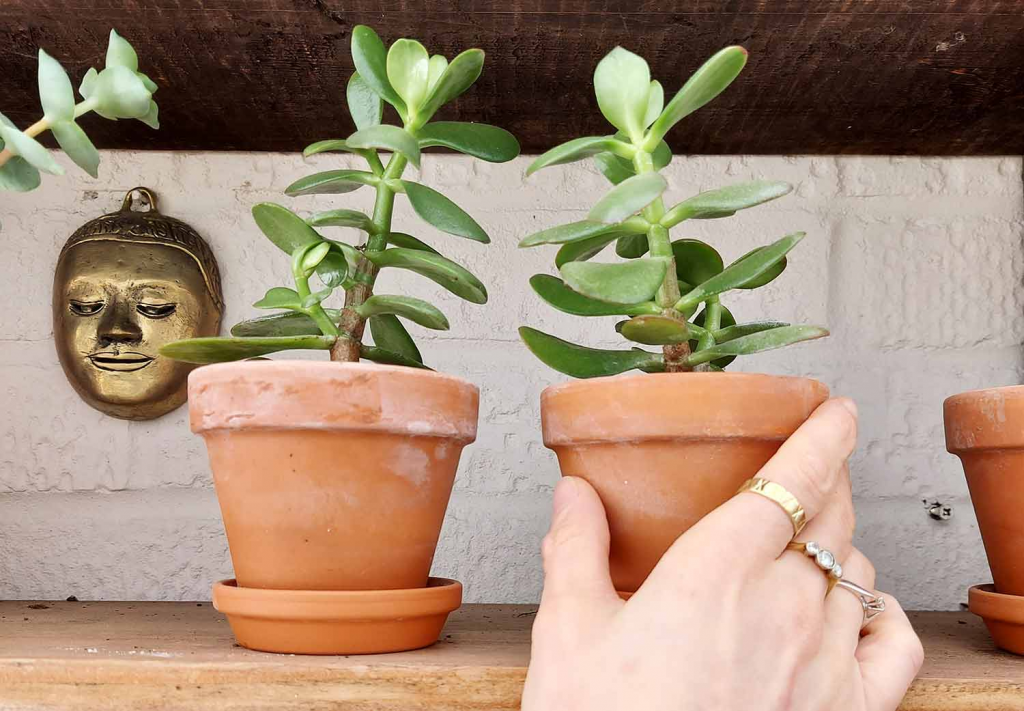
2. Stress and Anxiety Relief
Studies show that caring for indoor plants can lower stress hormones by up to 20%. The jade plant’s slow, steady growth encourages mindfulness and patience, offering a sense of calm in busy homes.
3. Humidity Balance
Jade plants release moisture through transpiration, helping maintain healthy indoor humidity levels that support better skin, breathing, and overall comfort.
4. Focus and Productivity
Research has found that simply having greenery in a workspace can increase productivity by 15%. The jade plant’s vibrant green leaves provide a visual reminder of growth and balance.
5. Longevity and Low Maintenance
Unlike high-maintenance houseplants, jade thrives on neglect, teaching the value of simplicity and resilience. Its long lifespan—sometimes living over 50 years—makes it a plant that grows with families across generations.
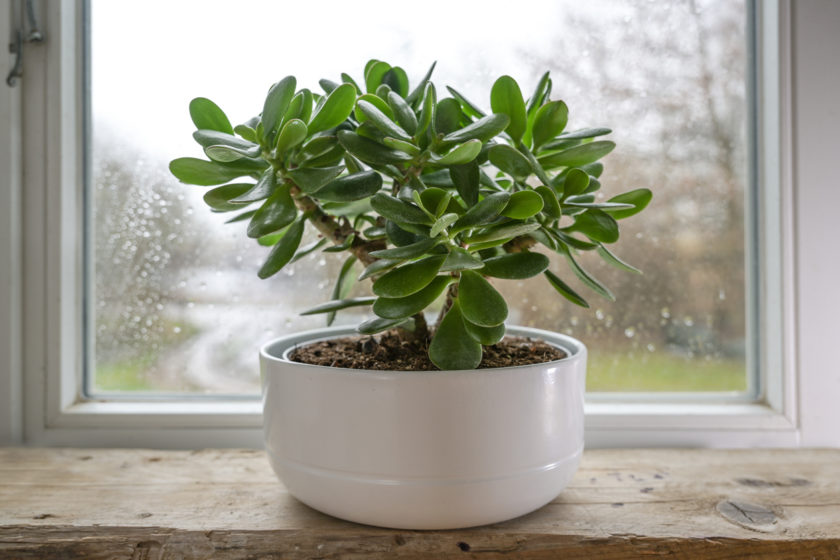
How to Care for a Jade Plant
| Care Factor | Best Practice | Why It Matters |
|---|---|---|
| Light | Bright, indirect sunlight | Prevents leaf drop and encourages growth |
| Water | Every 2–3 weeks, let soil dry | Avoids root rot |
| Soil | Well-draining succulent mix | Keeps roots healthy |
| Temperature | 65–75°F (18–24°C) | Ideal for steady growth |
| Pruning | Trim overgrown branches | Shapes the plant and encourages new leaves |
Tip: Jade plants are highly sensitive to overwatering. The most common cause of plant death is too much love, not too little.
Jade Plant in Feng Shui and Everyday Life
In Feng Shui, jade plants are considered “activators” of positive chi (energy).
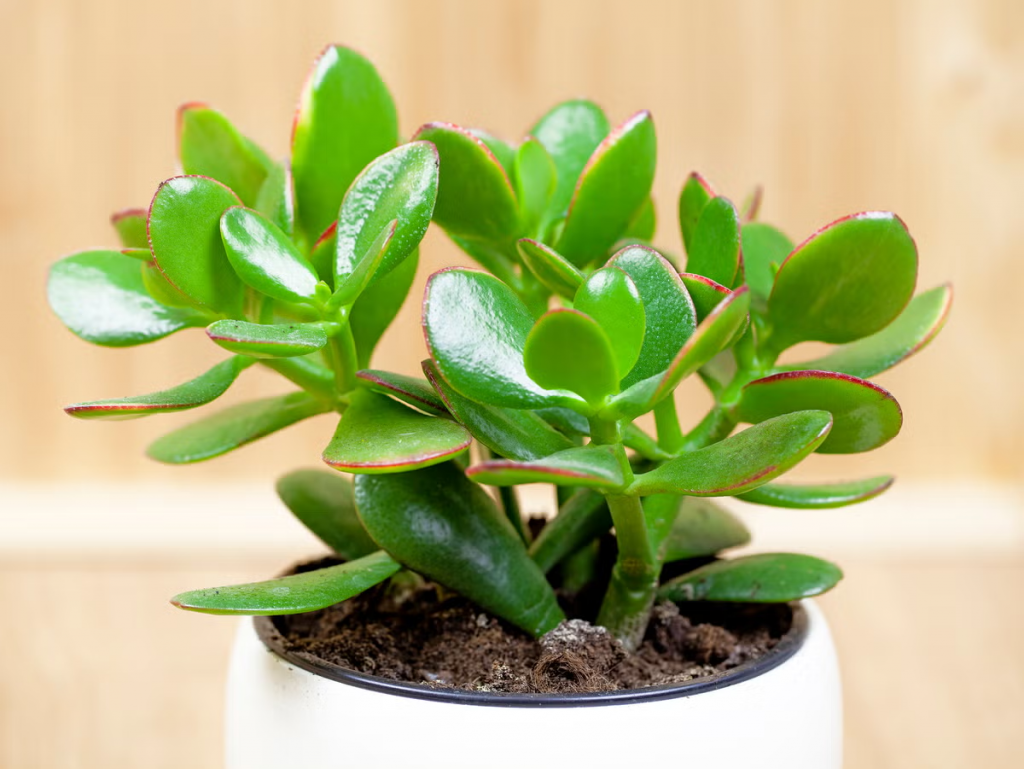
Placement Tips for Prosperity
- Near the front door: Welcomes wealth into the home.
- In offices: Placed near cash registers or desks to attract financial opportunities.
- South-east corner: Traditional wealth corner for amplifying abundance.
Beyond Feng Shui, many people report that simply looking at their jade plant gives them a sense of reassurance—a visual reminder that growth takes time but always bears fruit.
Case Study: Daniel, 45 – After placing a jade plant in his office, Daniel noticed not only a more pleasant atmosphere but also a boost in his motivation to organize and expand his business.
Case Study: Mei, 29 – Living in a busy city, Mei cared for her jade plant as a daily ritual. She found that watering it once a week helped her slow down and feel grounded, even during stressful work weeks.
Creative Ways to Use Jade Plants at Home
- Living Decor: Small jade cuttings in decorative pots for tabletops.
- Wellness Corners: Pair jade plants with other succulents for a calming meditation space.
- Gifts of Growth: Propagate jade from cuttings and gift them to loved ones as tokens of prosperity.
- Green Workspace: A small jade plant on your desk reduces eye strain and adds a refreshing touch.
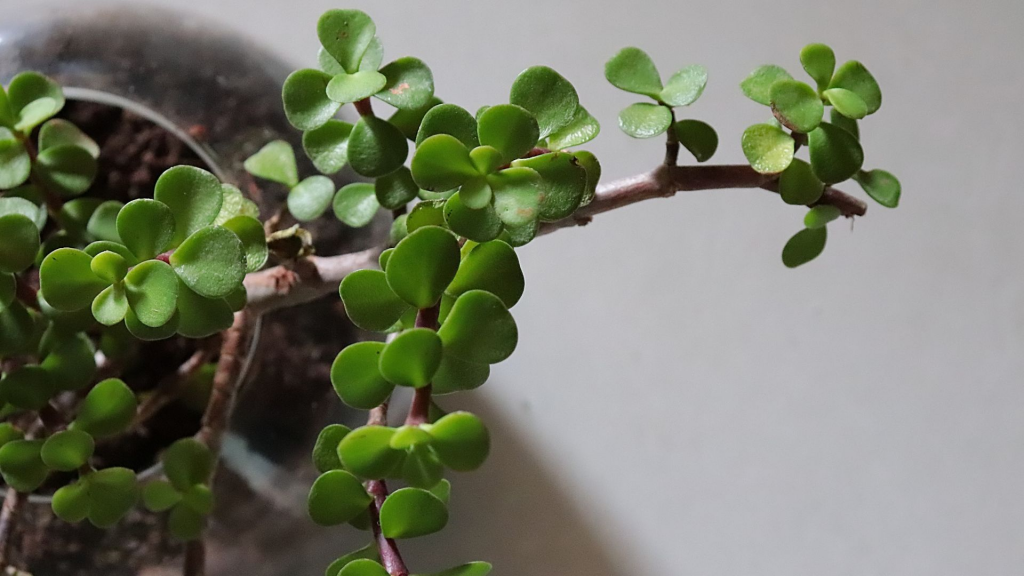
Common Myths About the Jade Plant
- “Jade plants only bring wealth if gifted.” While tradition suggests gifting, simply owning one still provides health and aesthetic benefits.
- “They’re impossible to kill.” Though hardy, jade plants can suffer from overwatering or lack of light if neglected completely.
- “They grow money.” While metaphorical, jade plants won’t grow cash—but they can grow a healthier, more balanced environment.
Conclusion
The jade plant is more than a symbol of prosperity—it’s a living ally for health, wellness, and balance. With its air-purifying qualities, stress-reducing presence, and cultural significance, it deserves a place in every home. Caring for a jade plant is not only easy but also deeply rewarding, offering beauty and benefits that can last for decades.
Quick Takeaways (FAQ Style):
Do jade plants really bring money? They symbolize prosperity, but their true power lies in the sense of positivity and balance they bring.
Are jade plants safe for pets? They can be toxic if ingested, so keep them away from cats and dogs.
How long do jade plants live? With proper care, they can thrive for 50 years or more.
Can I grow a jade plant from a leaf? Yes, jade is easy to propagate from cuttings or single leaves.
Disclaimer: This article is for informational purposes only and should not replace professional advice. Always consult gardening experts or healthcare providers for specific concerns.




